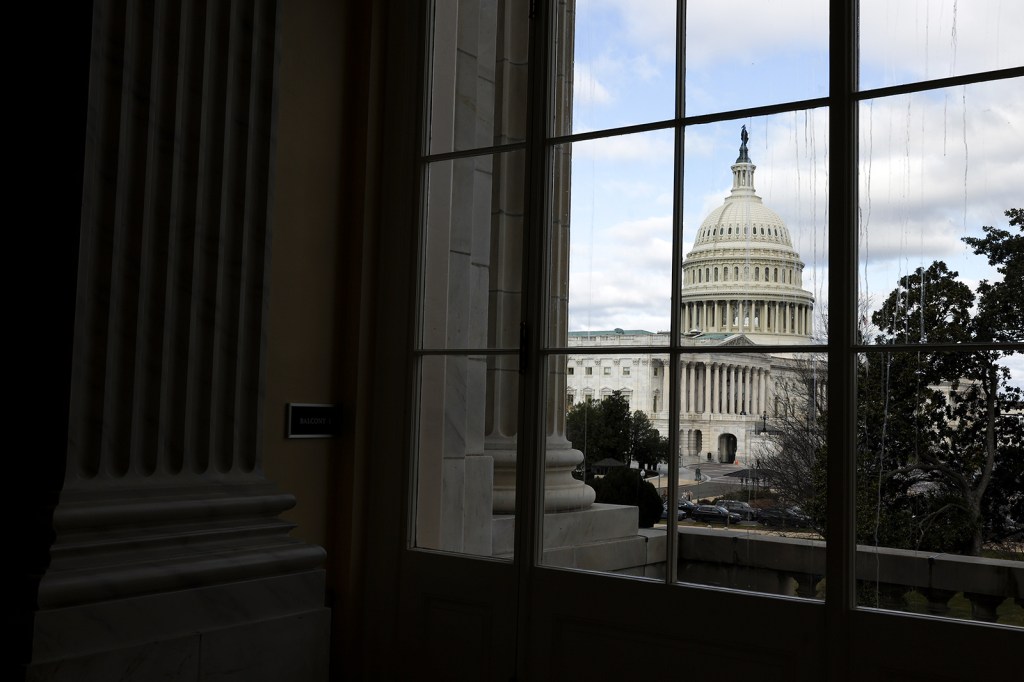At the end of a drab hallway on the fourth floor of the Cannon House Office Building, a group of couches holds the promise of a new era. Or at least that’s the idea, said Rep. Stephanie Bice.
In the rigidly partisan place that is Capitol Hill, staffers can go days without speaking to anyone outside their own circles, and these seats are meant to change that. A mural on the wall announces this is a “Staff Collaboration Space,” to make the intention clear.
“We felt like we kept hearing over and over that there was a need for an area where staff can grab a Coke and just sit down and chat,” Bice said in an interview in January, trying out the seating herself.
It may not look like much, just a few pieces of tufted leather furniture and a plant in the corner. But the collaboration space is the kind of small win that Bice is hoping to repeat. Changes like this one can make Congress function better, she insists, one incremental step at a time.
Bice is testing that theory as head of the House Administration Modernization Subcommittee, which rose from the ashes of the now-defunct Select Committee on the Modernization of Congress at the beginning of 2023.
The Oklahoma Republican likes to joke that she got “voluntold” into the job, after she went to GOP leadership to share some of her frustrations as a newcomer to the Hill. “Lo and behold, a couple months later, I ended up as a subcommittee chair,” she said.
Now Bice is walking the line between pragmatism and idealism at a time when public trust in government is low, key players are leaving the House and not everyone believes work like this can make a difference.
Serving alongside her as ranking member is Rep. Derek Kilmer, a veteran of the modernization crowd who is finishing out his last year in Congress after deciding not to seek reelection. Kilmer spent four years as leader of the select panel, as it offered more than 200 bite-size recommendations to improve the…
Read the full article here







